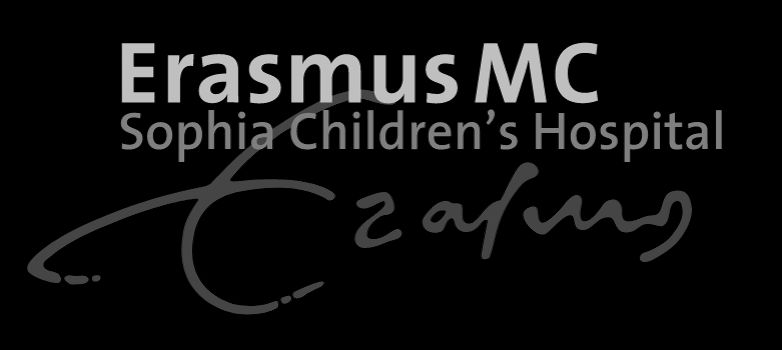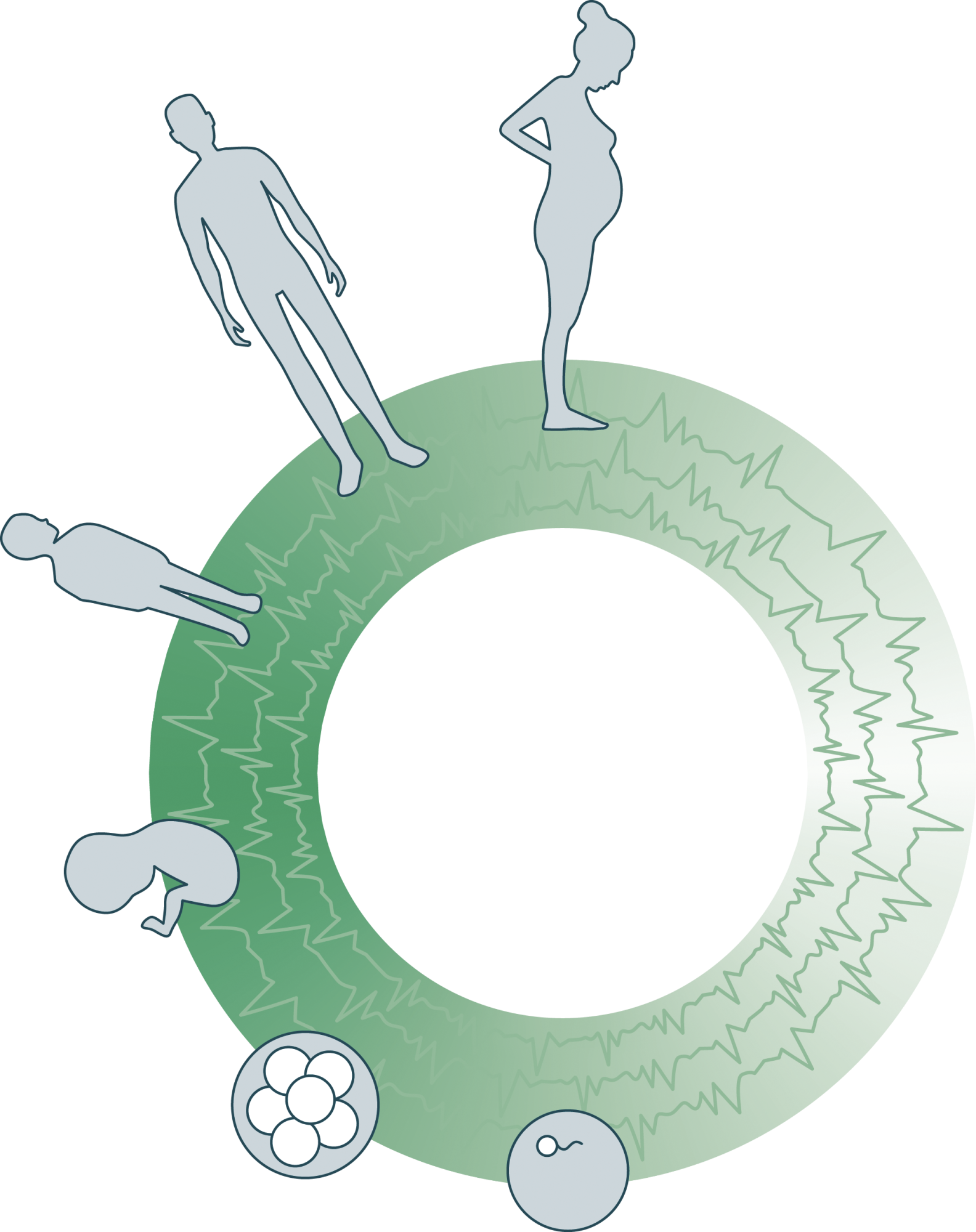General information
About
The Dutch Fetal Biobank was established in 2017 in line with the law and regulations amended by the Dutch fetal law. Ethical approval was granted by the Biobank Tissue Committee and the Medical Ethical Committee of the Amsterdam UMC, Amsterdam, The Netherlands (METC 2016_285). Donations of tissue are made entirely voluntarily by women undergoing termination of pregnancy, having a premature labour or ectopic pregnancy. Donors are asked to give explicit written consent for the fetal material to be collected, and only after they have been counselled about the termination of their pregnancy. The tissue is completely anonymized and cannot be traced back to the donors.
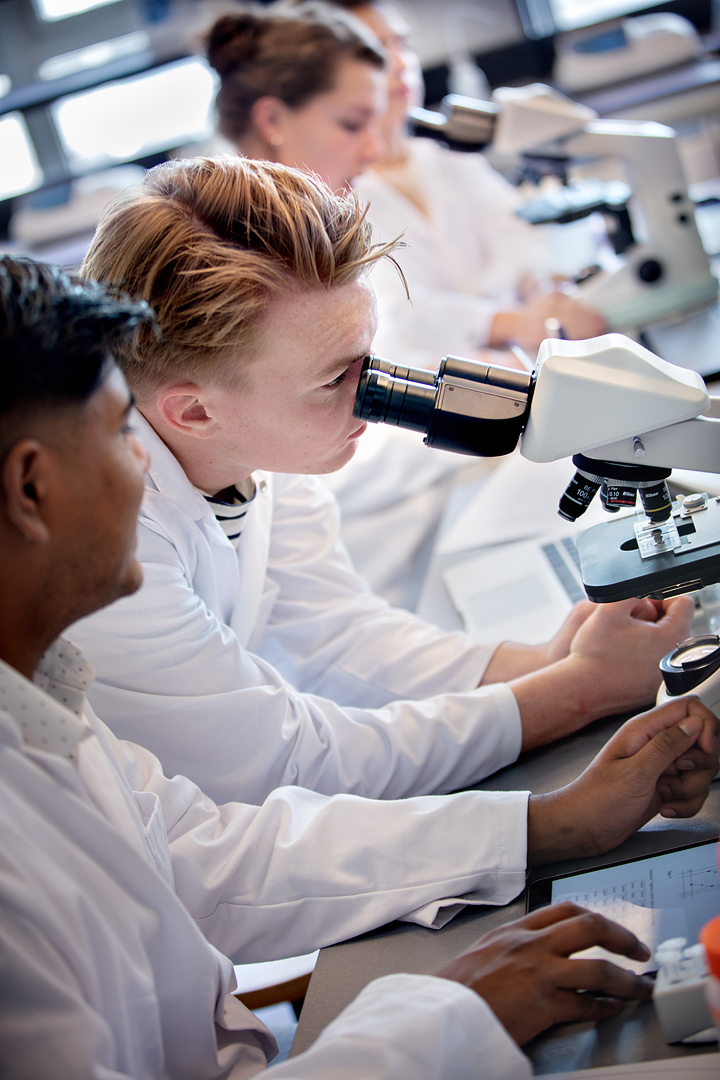
Eligibility for donation
Termination of pregnancy for any type of congenital anomaly (e.g. chromosomal anomaly, single organ malformation, Mendelian disorder, etc.), termination of pregnancy for maternal or social indications, ectopic pregnancies and immature birth (before 24 weeks of pregnancy). Fetuses are regarded as normal if the pregnancy was terminated for social reasons or maternal reasons, in the case of ectopic pregnancies and immature birth, and if no abnormalities were detected prenatally or postnatally. An umbilical cord sample is stored of each fetus to test for several aneuploidies (i.e. trisomy 13, 16, 18, 21, 22, and X and Y aneuploidies). Miscarriages and termination of pregnancy following intra-uterine demise are excluded because tissue quality cannot be guaranteed in these cases.
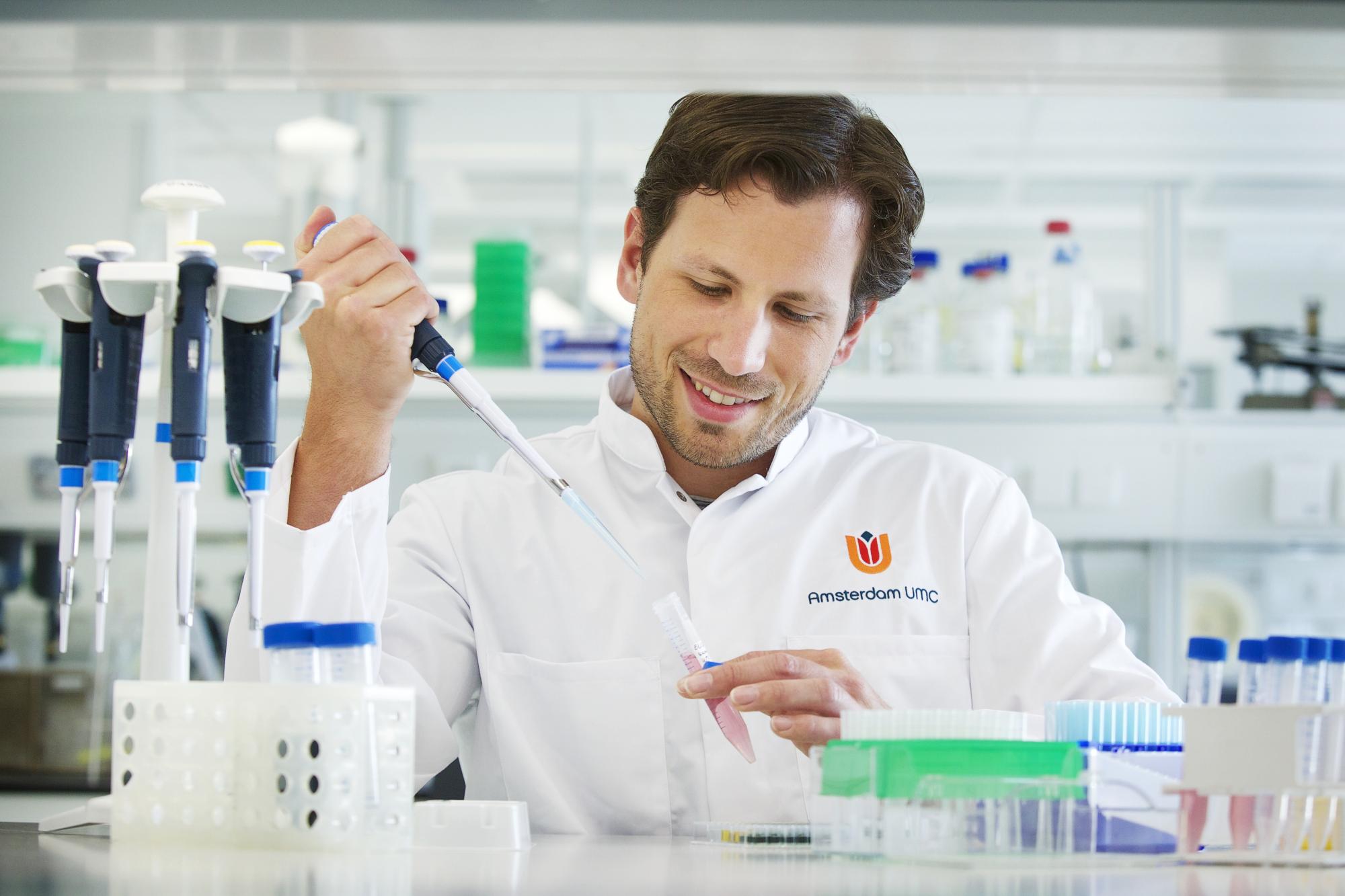
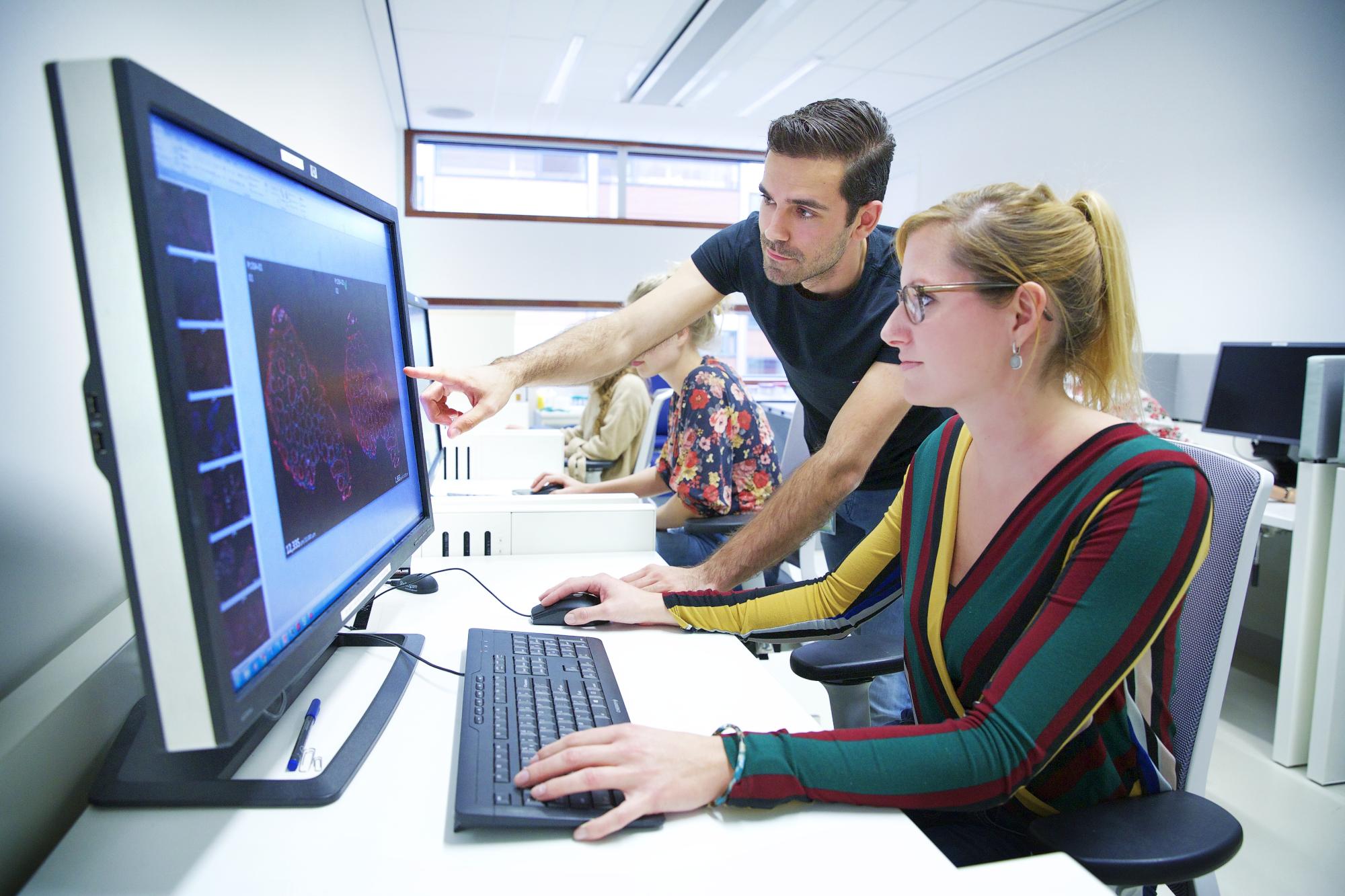
Material and repositories
The Dutch Fetal Biobank can provide embryonic and fetal material from 3 up to 22 post-conception weeks. Almost all specimens are born intact after medically induced labour. This allows complete and accurate determination of the internal and external phenotype as well as dissection of specific regions within organs based on anatomical landmarks. The Dutch Fetal Biobank is a 24-hour standby service, this allows the collection of fetuses as soon as possible after birth to ensure the shortest possible postmortem interval (i.e. the time between fetal death and storage of samples). Specimens will be accepted for one of the following repositories, depending on the postmortem interval, intactness of the specimen, and in some cases, specific requirements from researchers who are receiving fetal material for their research.
- Fetal tissue repository: High-quality fetal organ samples to facilitate molecular and cell biological analyses.
- Fetal image repository: High-resolution images of fetuses to study morphology and topographic relations during development.
Management of material
The tissue and all imaging material is held at the Amsterdam UMC, location AMC, Amsterdam. It is intended for use primarily by academic researchers. The Dutch Fetal Biobank management is responsible for the overall management of the project and vets all applications to use material. Applications are made via a project registration form. These projects are then reviewed by the Dutch Fetal Biobank ethical committee that ensures that the projects fall within the scope of the Dutch Fetal Biobank and that the tissue is used accordingly.
The Dutch Fetal Biobank makes every effort to ensure that optimal use is made of donated tissue, both in terms of the aims and quality of the research for which it is used and avoidance of duplication and wastage.
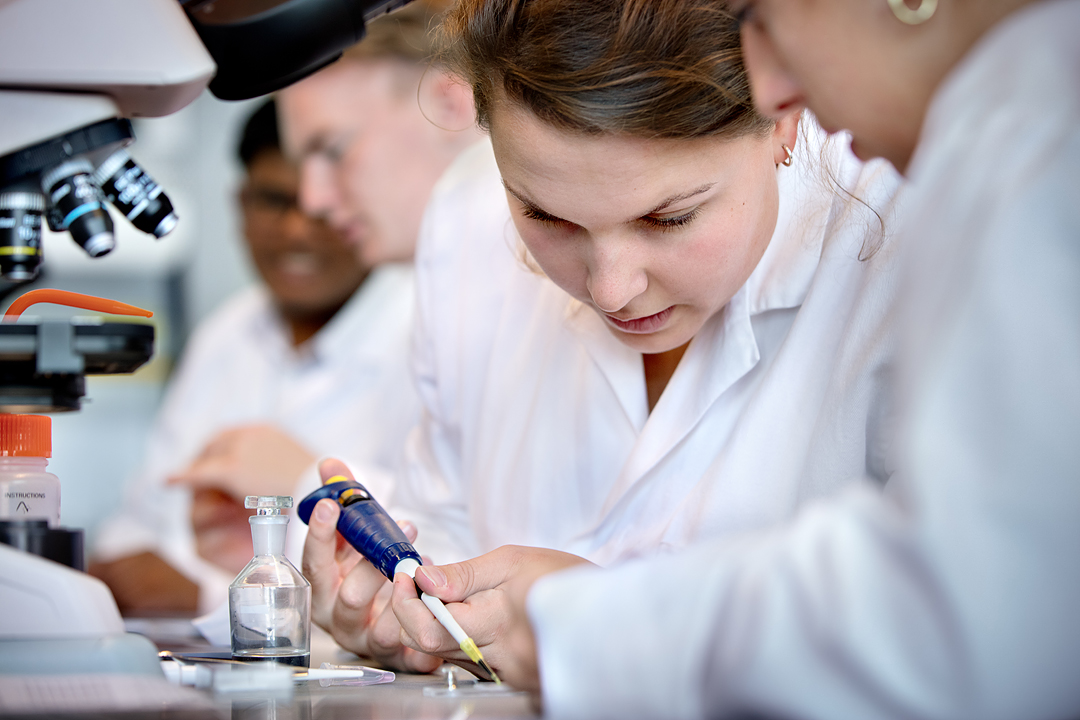
FAQ
Is it possible to have an insight in the embryonic and fetal material that has been included?
Please email fetal.biobank@amsterdamumc.nl for an up-to-date excel list with all included embryonic and fetal material, including information such as gestational age and reason for termination of pregnancy.
How is the age of the fetuses estimated?
Age is estimated in the hospital before termination of pregnancy by the treating gynaecologist based upon the crown-rump-length on ultrasound.
What kind of information about the material is available?
Upon retrieval, the specimens are anonymised. All available pre- and postnatal clinical information such as reason for termination, ultrasound findings, karyotype, micro-array data and results of whole-exome sequencing, is systematically collected before anonymization. In addition, important parameters associated with termination of pregnancy, such as methodology and last registered positive heart action are documented.
Which types of tissues does the tissue repository contain?
If the fetus is dissected, samples of each organ system are collected and the tissue samples are stored using various methods to facilitate a variety of analyses. This includes storage in RNAlater, snapfrozen tissue, culture medium and any remaining tissue that is sufficiently intact for morphological or histological examination following organ isolation is fixed in 4% (w/v) paraformaldehyde (PFA) in phosphate buffered saline (PBS). A complete list of tissue types and storage methods can be found in our dissection protocol, please email fetal.biobank@amsterdamumc.nl for more information.
How is the quality of the dissected tissue controlled?
We monitor the quality of the collected samples, by randomly sampling 1% of the total number of samples and extract RNA using the ReliaPrep™ RNA Tissue Miniprep System Kit (Promega, Wis, USA). Subsequently, RNA quality is assessed using a 4200 Agilent TapeStation System (Agilent, Ca, USA), which estimates the degree of RNA degradation reflected in a RIN on a scale of 0 – 10.
What kind of images does the image repository contain?
The image repository contains complete high resolution (3D) datasets of fetuses imaged using ultrasound, 3T MRI, 7T MRI, and/or micro-CT.
Do I need to obtain local ethical approval to use material from the Dutch Fetal Biobank?
Ethical permission for the collection of the material for research has been obtained at the Amsterdam UMC, Amsterdam (METC 2016_285, #B2017369). Local ethical approval for applicants based in the Netherlands is usually not necessary if the proposed project lies within the activities for which the Dutch Fetal Biobank has existing ethical approval (primarily molecular studies and imaging studies).
Applicants based in other countries should be aware that it is their responsibility to make sure that local ethical approval is arranged and that the use of human embryonic and fetal material complies with their own country’s national ethical practices and guidelines. The Dutch Fetal Biobank cannot be held responsible for users’ actions.
Do I need a Material/Data Transfer Agreement?
If the Dutch Fetal Biobank is sending embryonic and/or fetal materials then an MTA will be drafted, in the case of imaging data this should be a DTA. Information about the procedure can be obtained through fetal.biobank@amsterdamumc.nl.
What if I wish to publish my data?
We strongly encourage publications of research using material from the Dutch Fetal Biobank. All publications arising from the use of material provided by the Dutch Fetal Biobank must acknowledge the contribution of the Dutch Fetal Biobank within the manuscript. Please follow our Ethics & Citation policy.


